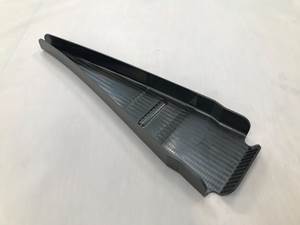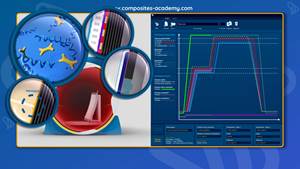Argosy International expands on Taiwan expansion
Argosy’s composites manufacturing services manager, Thibaud Brunel, recently agreed to answer some questions about Argosy’s activities in the APAC aerospace sector.
As CW reported on April 11, composite materials distributor Argosy International Inc. (New York, New York) is constructing a new 2,300m2 materials and manufacturing facility in Taichung City, Taiwan, to bolster its business as supplier of advanced composites and related materials to the aerospace industry in the Asia Pacific (APAC) region. Located in the Taichung Duty Free Zone, the new facility will be qualified to AS9100 and includes a clean room, cutting table, and freezer to process cut-to-shape composite kitted solutions for customers.
Readers familiar with Argosy know that it was established in 1988 as a trading company, and began to focus on the commercial aerospace market in Asia when it became the material solutions provider to a major aerospace manufacturer. To support this business, Argosy opened its first overseas office in Taiwan, then became a key supplier to China; it was well positioned in this market when outsourcing to Asia by aircraft manufacturers such as Boeing, Sikorsky, Honeywell and Eurocopter took off in 2000. To serve the needs of the market, Argosy has opened offices in Beijing, Xian, and Shanghai, China as well as in Korea, Malaysia, Singapore, India and Australia. Currently, Argosy is an approved supplier to every major aerospace contractor in Asia, excluding Japan, and concentrates on supplying specialty chemical products including tooling resins, adhesives, coatings, potting compounds, specialty tapes, film adhesives, honeycomb, sealants, prepregs and high performance fabrics.
It also provides a range of services including material cutting and kitting; Vendor Managed Inventory (VMI) distribution; logistics; energy efficiency through comprehensive green building services; production optimization software; and technical support, to create value for customers by optimizing costs, production efficiency, and material utilization.
Argosy’s composites manufacturing services manager, Thibaud Brunel, recently agreed to answer some questions about Argosy’s activities in the APAC aerospace sector. Brunel has more than 10 years of experience in aerospace composites, including testing and outsourcing solutions.
CW: Where does Argosy International Inc. fit into this industry?
TB: Argosy is the exclusive supplier in APAC (excluding Japan) for Solvay (formerly known as Cytec Aerospace Materials) composite materials. Argosy is also a composite manufacturing services company, focused on providing the right material at the right time and on enhancing composite components manufacturers’ production processes. It is a perfect fit! I recently spoke at the SAMPE China Exhibition on the topic “A New Paradigm to Meet Industry Needs in a Disruptive Business Environment”; the sector needs to industrialize and find solutions for these three main issues, including cost reduction, increased capacity, and waste reduction/value creation. We have developed value-enhancing solutions for our customers to address these three main issues. We help our customers use composite materials better in many different ways, such as outsourcing activities, production optimization tools, and energy efficiency solutions.
CW: Why did Argosy choose to build a new facility in Taiwan?
TB: For two specific business reasons: the first reason being that Aerospace Industrial Development Corp. (AIDC) in Taiwan was Argosy’s first customer and we are committed to support them the best we can as we have done over the past 25 years. The second reason is because the new facility will complement our current Vendor-Managed Inventory Program, which Argosy implemented in Taiwan in 2006.
CW: How large will the new facility be, and what kind of machining/assembling will be done there?
TB: Argosy’s facility will be approximately 2,000 square meters; the facility will house a cleanroom, cutting tables, freezers and provide room for future growth and development. The important thing to note is that we are located in Taichung free trade zone, making the import and export process easier for our customers. The facility has been designed to be multi-customer oriented and flexible for new programs. Finally, it will also serve as a proving ground for technologies we want to propose to our customers. The facility has room for expansion, with the potential for additional space if needed. We will increasingly focus on proposing outsourced solutions to our customers for non-core activities.
CW: When will the facility be fully functional?
TB: The facility should be fully functional in Q4 2016. We are in the process of hiring and training several new team members. Our team in Taiwan is developing and performing exceptionally well. Their progress is helping us get the new facility quickly up to speed.
CW: Which Argosy products will be manufactured in Taiwan?
TB: The first products manufactured in this facility will be carbon fiber prepreg kits, ready to lay-up.
CW: What are the key targeted markets this facility will support?
TB: Argosy is targeting mainly the aerospace market, and will be prepared to support every composite component manufacturer in Asia.
CW: How are these markets growing or changing?
TB: We clearly identified a need for all segments of the supply chain to focus on price reduction. This is driven by Airbus and Boeing, who are the end users of the parts manufactured in that region. Simultaneously, there is a need for the market to become more industrialized with firms growing larger to enhance their production processes, as order backlogs are full but manufacturing capacity is not growing fast enough. In addition to these two trends, there is a continually increasing environmental constraint on waste, energy savings, water usage, material recycling…in sum, “cost down, rate up, waste down”.
CW: What does you see as key to success in these markets?
TB: The key will be to transform successfully from being strictly a material supplier and distributor to a manufacturing services company, ready to identify and create value in a partnership relationship with our customer base. In order to meet the market demands and requirements, there is no other option but to share risks and to relieve the pressure on our customers, providing solutions to create value far beyond just providing lower-cost materials.
Related Content
AMRC Training Centre introduces composites apprenticeship opportunity
With partners McLaren and Teledyne CML Composites, the Training Center will train new composites technicians in South Yorkshire to build up the future industry workforce.
Read MoreASCEND program update: Designing next-gen, high-rate auto and aerospace composites
GKN Aerospace, McLaren Automotive and U.K.-based partners share goals and progress aiming at high-rate, Industry 4.0-enabled, sustainable materials and processes.
Read MoreNew online training course targets prepreg basics
JEC World 2024: Composites Expert highlights how its E-Learning Composites Academy platform supports flexible industry learning with new courses developed with Stelia Aerospace North America.
Read MoreToray, University of Chicago speed up polymer recycling R&D
A jointly developed multi-scale computational predictive technique can accurately predict viscoelasticity from the chemical structures of polymers, ramping up product maturation.
Read MoreRead Next
Developing bonded composite repair for ships, offshore units
Bureau Veritas and industry partners issue guidelines and pave the way for certification via StrengthBond Offshore project.
Read MorePlant tour: Daher Shap’in TechCenter and composites production plant, Saint-Aignan-de-Grandlieu, France
Co-located R&D and production advance OOA thermosets, thermoplastics, welding, recycling and digital technologies for faster processing and certification of lighter, more sustainable composites.
Read More“Structured air” TPS safeguards composite structures
Powered by an 85% air/15% pure polyimide aerogel, Blueshift’s novel material system protects structures during transient thermal events from -200°C to beyond 2400°C for rockets, battery boxes and more.
Read More


























